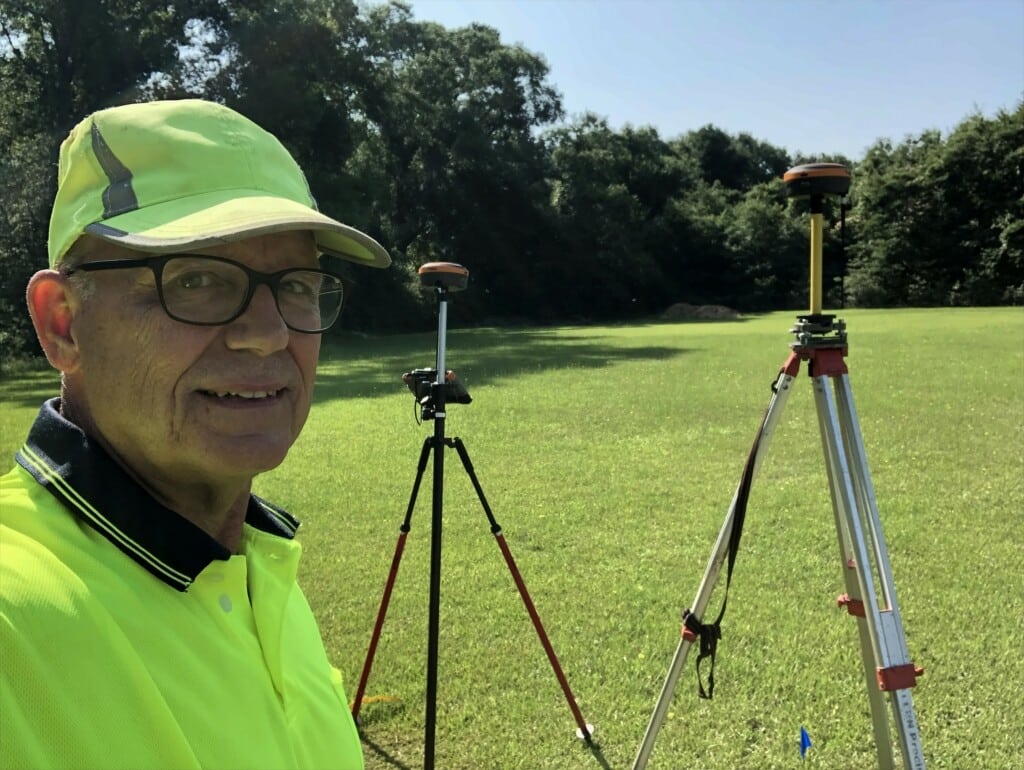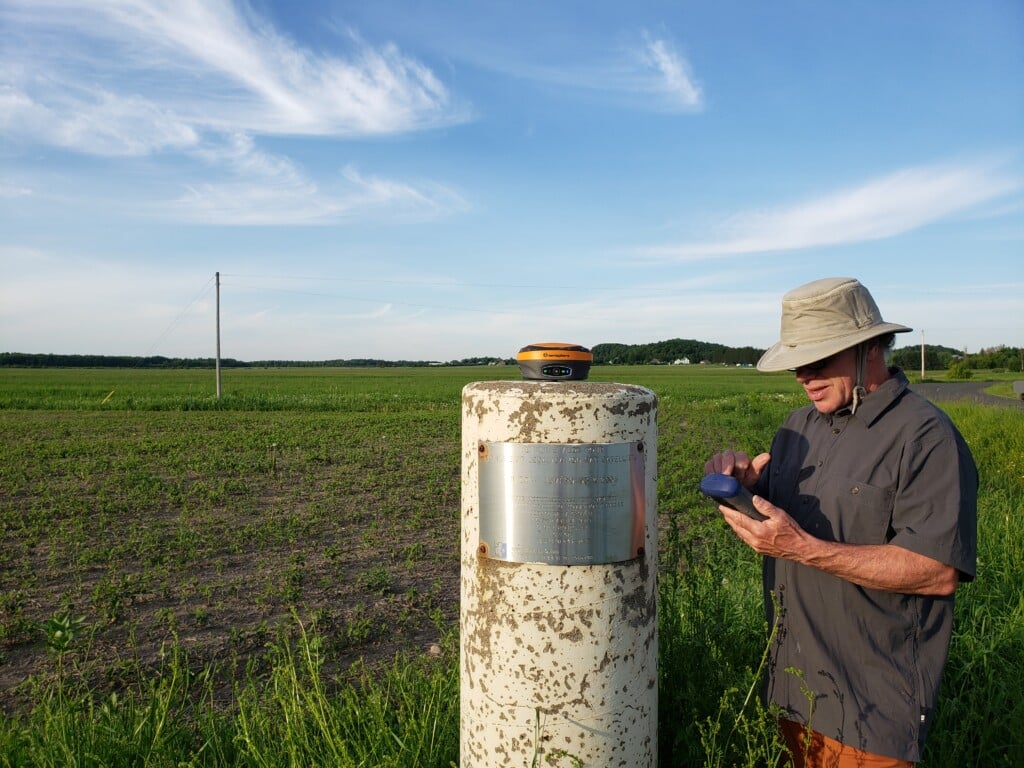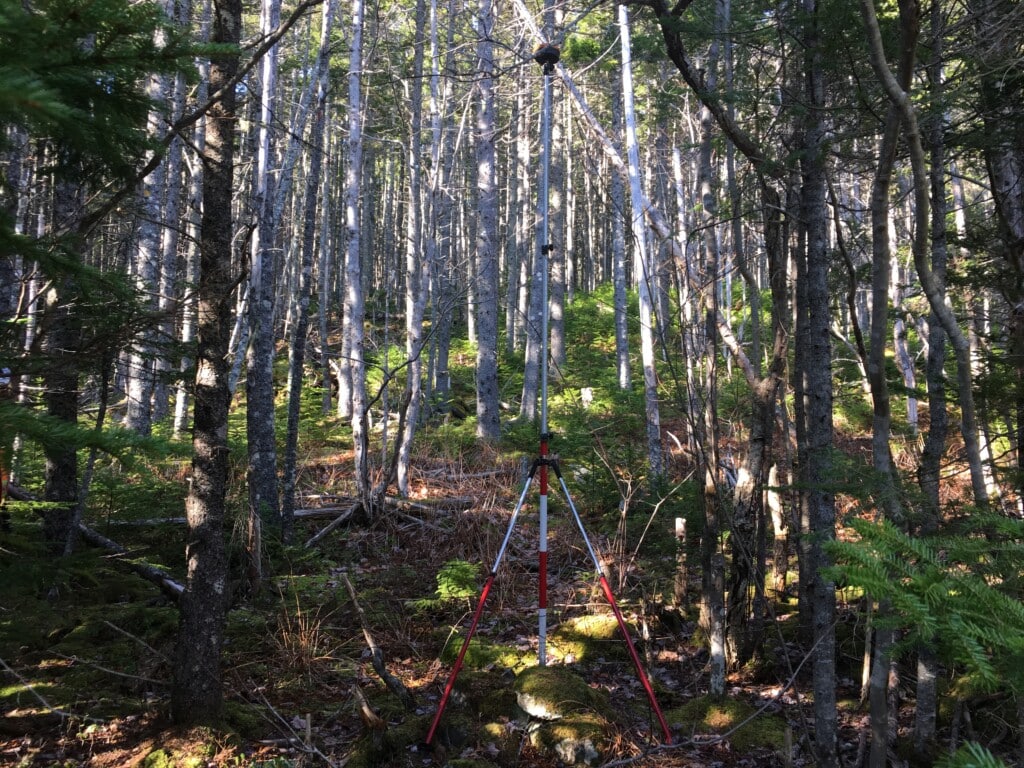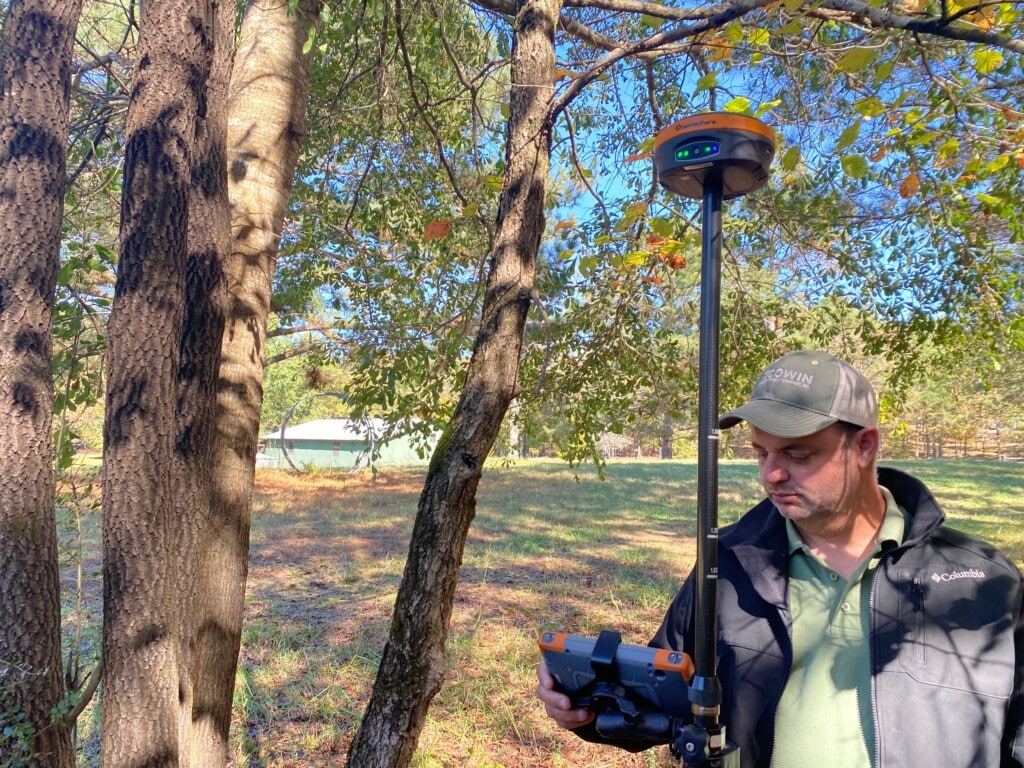
Surveying is a critical field that plays a pivotal role in various industries, from construction and real estate to infrastructure development and environmental planning. Surveyors are responsible for measuring, mapping, and analyzing land, both above and below the ground. Their work is essential for the planning and execution of diverse projects, making it a profession with a strong demand. While many surveyors work for established firms or government agencies, a significant number decide to take the entrepreneurial route and start their own surveying firms.
This article explores the motivations and factors that drive surveyors to establish their surveying firms. It delves into the advantages and challenges of this endeavor and provides a step-by-step guide on how to start a surveying firm. Whether you are an aspiring surveyor considering entrepreneurship or someone interested in understanding the dynamics of the surveying industry, this article will shed light on why surveyors choose to become business owners.

1. Independence and Autonomy: One of the primary motivations for surveyors to start their own firms is the desire for independence and autonomy. Working for established companies or government agencies often means adhering to rigid procedures and protocols. By starting their firms, surveyors can have greater control over their work and decision-making processes. Become your own boss, and work on your own terms.
2. Passion for Surveying: Many surveyors are deeply passionate about their work. Starting their surveying firm allows them to focus on the aspects of surveying they love the most, whether it’s boundary surveys, topographic mapping, or geodetic measurements. It allows them to tailor their services to match their expertise and interests.
3. Entrepreneurial Spirit: Some surveyors have a natural entrepreneurial spirit and a desire to build something from the ground up. The challenge of establishing a successful business in a competitive field can be a significant motivator. It’s an opportunity to apply their surveying skills to not only serve clients but also to build a thriving business.
4. Financial Incentives: Entrepreneurship can bring significant financial rewards. As the owner of a surveying firm, surveyors have the potential to earn more than they would as salaried employees. They can set their rates and determine their income based on their client base and project volume. At present time, there is a huge need for surveyors. You have a lot of opportunity to make a difference in your local community.
5. Client Focus: For surveyors with a strong client-oriented approach, starting their firm allows them to develop long-term relationships with clients, provide personalized service, and cater to specific client needs. This can lead to a more satisfying and fulfilling professional journey.
6. Specialization: Specialization within surveying can also be a compelling factor. A surveyor might have a unique skill set or passion for a niche area within surveying, such as land development, environmental surveys, or 3D laser scanning. Starting a firm can enable them to focus exclusively on their chosen specialization.
7. Geographic Location: Some surveyors might want to work in a specific geographic area that isn’t well-served by existing firms. Starting their firm allows them to target that market and become the go-to surveying expert in their chosen region.8. Legacy and Family Business: Some surveyors may have a tradition of surveying in their family and wish to continue or expand upon that legacy by establishing their surveying firm. This also provides the opportunity to pass on the business to the next generation.

1. Flexibility: Owning a surveying firm offers flexibility in work hours, project selection, and service offerings. Surveyors can adapt to market trends and changes, allowing for quick decision-making and agile responses to client needs.
2. Increased Earnings: While entrepreneurship carries financial risks, it also offers the potential for higher earnings. Surveyors can set their rates, control expenses, and aim for profitable growth.
3. Personal Growth: Managing a surveying firm provides an opportunity for personal and professional growth. Entrepreneurs learn various skills, including business management, marketing, client relations, and financial management, which can enhance their overall capabilities.
4. Client Relationships: Surveyors who start their firms can build strong, long-term relationships with clients, creating a loyal customer base and repeat business. This can lead to a steady flow of projects and referrals.
5. Diverse Projects: As an independent surveyor, one can take on a wide range of projects, leading to a diverse and exciting professional life. This variety can be intellectually stimulating and enhance one’s skills.
6. Innovation: Independent surveying firms have the flexibility to adopt the latest technologies and methods, staying at the forefront of innovation in the industry.
7. Legacy Building: Building a successful surveying firm is a legacy that can be passed on to future generations or sold as a valuable asset, providing financial security and long-term stability.
8. Community Involvement: Surveying firms often have a local presence and can actively participate in community projects and initiatives, making a positive impact on the areas they serve.
1. Startup Costs: Launching a surveying firm requires a significant financial investment in equipment, software, insurance, office space, and staff. Securing the necessary capital can be a hurdle for aspiring entrepreneurs.
2. Regulatory Compliance: The surveying industry is subject to strict regulations and licensing requirements. Entrepreneurs must navigate the legal framework to establish their firms, which can be a complex and time-consuming process.
3. Competition: The surveying field is highly competitive. New firms must compete with established companies for clients and contracts, making it challenging to establish a foothold in the market. Finding and retaining clients is a continuous challenge. Marketing and networking skills are essential to build a client base.
4. Work-Life Balance: Managing a surveying firm can be demanding, leading to a potential imbalance between work and personal life. Entrepreneurs may have to work long hours to establish and grow their businesses.
6. Financial Risk: The entrepreneurial path carries inherent financial risks. A surveyor must be prepared for fluctuations in income, financial setbacks, and the possibility of business failure.
7. Technology Investments: Keeping up with evolving surveying technology can be costly, and staying competitive often requires substantial investments in cutting-edge equipment and software.
9. Regulatory Changes: The surveying industry is subject to evolving regulations, and entrepreneurs must stay informed about changes that might affect their business operations.
1. Market Research: Conduct thorough research on the local surveying market, identifying your target clients, competition, and potential areas of specialization.
2. Business Plan: Create a comprehensive business plan that outlines your firm’s mission, services, pricing strategy, and financial projections. It should now also include a section on long-term growth and expansion strategies.
3. Legal Structure: Choose a legal structure for your firm, such as a sole proprietorship, partnership, limited liability company (LLC), or corporation. Register your business with the appropriate government authorities.
4. Licensing and Certification: Ensure that you and your staff have the necessary licenses and certifications to practice surveying in your jurisdiction. Additionally, keep track of any changes in licensing requirements.
5. Financial Planning: Secure the necessary financing, whether through personal savings, loans, or investors. Create a budget and financial plan to manage expenses and income, accounting for longer-term financial stability.
6. Equipment and Software: Invest in high-quality surveying equipment and software to provide accurate and efficient services to your clients. Stay current with technological advancements and consider a technology adoption plan.
7. Office Setup: Set up a professional office space, whether physical or virtual, to manage administrative tasks, client meetings, and project coordination. As your business grows, consider expansion and improving your office infrastructure.
8. Marketing and Branding: Develop a strong brand identity and marketing strategy to attract clients. This can include a website, social media presence, and promotional materials. As your firm expands, invest in advanced marketing techniques and strategies.
9. Client Acquisition: Begin networking and reaching out to potential clients. Building a client base takes time and effort, so be persistent in your outreach. Consider long-term client retention strategies and expanding your client base.
10. Insurance: Purchase the necessary liability insurance to protect your firm and clients in case of any errors or accidents. Regularly review and update your insurance policies to ensure they provide adequate coverage.
11. Staffing: If your firm grows, hire skilled staff or collaborate with other professionals as needed to handle project demands. Implement strategies for employee development and retention.12. Continuous Learning: Stay updated with the latest advancements in surveying technology and methods to maintain your competitive edge. This should include investing in staff training and professional development.

Investing in the right surveying equipment is crucial for the success and reputation of your surveying firm. The accuracy and efficiency of your surveying services depend on the quality and suitability of the equipment you use. While the specific equipment needs may vary based on the types of surveys you plan to undertake and your budget, here is an overview of the essential equipment categories to consider:
1. Total Stations: Total stations are multifunctional surveying instruments that measure distances, angles, and coordinates with high precision. They are essential for land surveying, topographic mapping, and construction layout. Consider factors like accuracy, range, and ease of use when selecting a total station. High-quality total stations offer features such as reflector less measurement and electronic data recording. There are generally two options, manual and robotic total stations.
2. Global Navigation Satellite System (GNSS) Receivers: GNSS receivers, also known as GPS receivers, are indispensable for geodetic and high-precision surveys. They use signals from satellites to determine precise coordinates. Invest in a high-precision GNSS receiver to ensure accurate positioning. Consider whether real-time kinematic (RTK) or post-processing GNSS is more suitable for your surveying needs. The Hemisphere S631 is a great example of an affordable and highly capable receiver.
3. Levels and Auto Levels: Levels are used to determine height differentials and establish horizontal reference lines. Auto levels are equipped with compensators for quick and accurate leveling. Consider the magnification level, the range of measurement, and the type of compensator (e.g., magnetic or electronic) when choosing a level.
4. Theodolites: Theodolites are optical instruments used to measure horizontal and vertical angles. They are commonly used in construction surveys and site layout. Look for theodolites with precise angle measurement capabilities and built-in digital displays for ease of data collection.
5. Laser Scanners: Laser scanners, such as 3D laser scanners, are valuable for capturing detailed spatial information. They are used in building information modeling (BIM), as-built surveys, and infrastructure documentation. Consider factors like scanning range, scan speed, and the ability to capture high-resolution point clouds when choosing a laser scanner.
6. Data Collectors and Field Software: Data collectors are handheld devices that allow surveyors to input data and control surveying equipment. Field software enables data collection, processing, and transfer to office software. Choose data collectors that are compatible with your surveying equipment and opt for field software that streamlines data management and analysis.
7. Surveying Accessories: Various accessories enhance the functionality of your equipment, such as tripods, prisms, reflectors, and GPS poles. These items facilitate precise measurements and efficient fieldwork. Select accessories that are compatible with your main surveying instruments and consider investing in high-quality, durable accessories.
8. Office Software and Workstations: In addition to field equipment, you’ll need office software for data processing, analysis, and report generation. Common software includes AutoCAD, GIS software, and surveying-specific software like MicroSurvey FieldGenius. Ensure that your office computers and workstations are equipped with sufficient processing power and storage capacity to handle large survey datasets.
9. Safety Equipment: Safety is paramount in surveying. Equip your field teams with safety gear, including hard hats, high-visibility vests, safety glasses, and proper footwear. Additionally, consider environmental conditions when surveying in specific regions and provide protective gear as needed.
10. Training and Support: Proper training for your team on how to use and maintain the equipment is essential. Seek training from equipment manufacturers or certified trainers. Establish a relationship with equipment suppliers or dealers who can provide technical support, equipment maintenance, and spare parts as needed.Selecting the right surveying equipment and keeping it well-maintained is a significant investment for your surveying firm. It not only enhances the quality of your services but also builds trust with clients who rely on accurate survey data for their projects. When choosing equipment, consider your specific surveying focus, the geographic areas you’ll be operating in, and the technical support available from equipment suppliers. Keep your equipment up to date with the latest technological advancements to stay competitive in the ever-evolving field of surveying.

Starting a surveying firm can be a rewarding endeavor for surveyors who seek independence, financial success, and the opportunity to make a mark in their industry. While it comes with various challenges, the advantages, such as increased earnings, personal growth, and the ability to shape one’s professional destiny, make it a compelling option. By following a well-planned approach and persevering through obstacles, surveyors can build successful firms that serve their clients and contribute to the growth and innovation of the surveying field. Entrepreneurship in surveying is not just a career path; it’s a journey of passion, ambition, and the pursuit of excellence. As the field evolves, those who choose to start their surveying firms will play an integral role in shaping its future.
Bench Mark Equipment & Supplies is your team to trust with all your surveying equipment. We have been providing high-quality surveying equipment to land surveyors, engineers, construction, airborne and resource professionals since 2002. This helps establish ourselves as the go-to team in Calgary, Canada, and the USA. Plus, we provide a wide selection of equipment, including global navigation satellite systems, RTK GPS equipment, GNSS receivers, and more. We strive to provide the highest level of customer care and service for everyone. To speak to one of our team today, call us at +1 (888) 286-3204 or email us at [email protected]

North America’s #1 supplier of land surveying equipment and instruments.